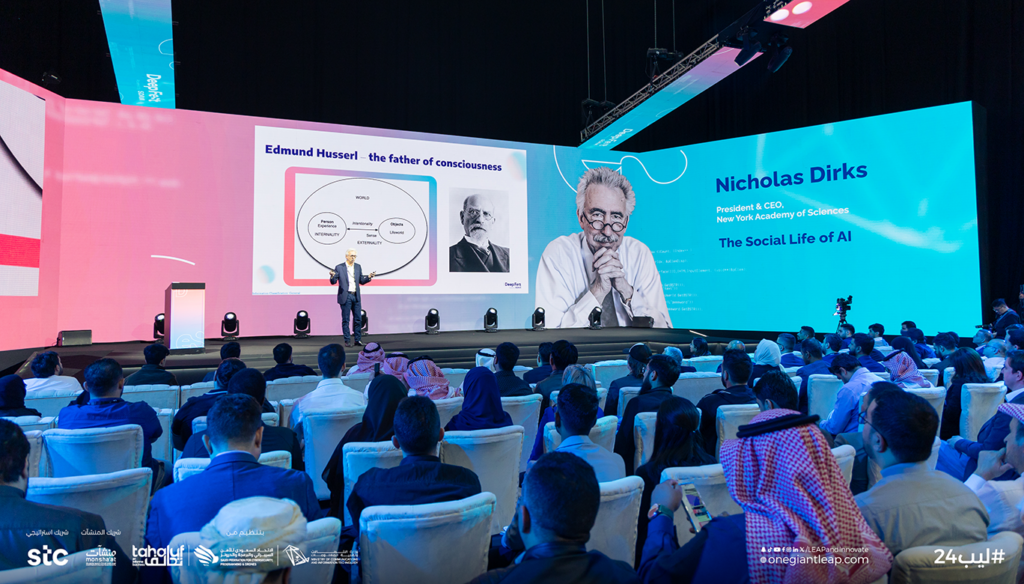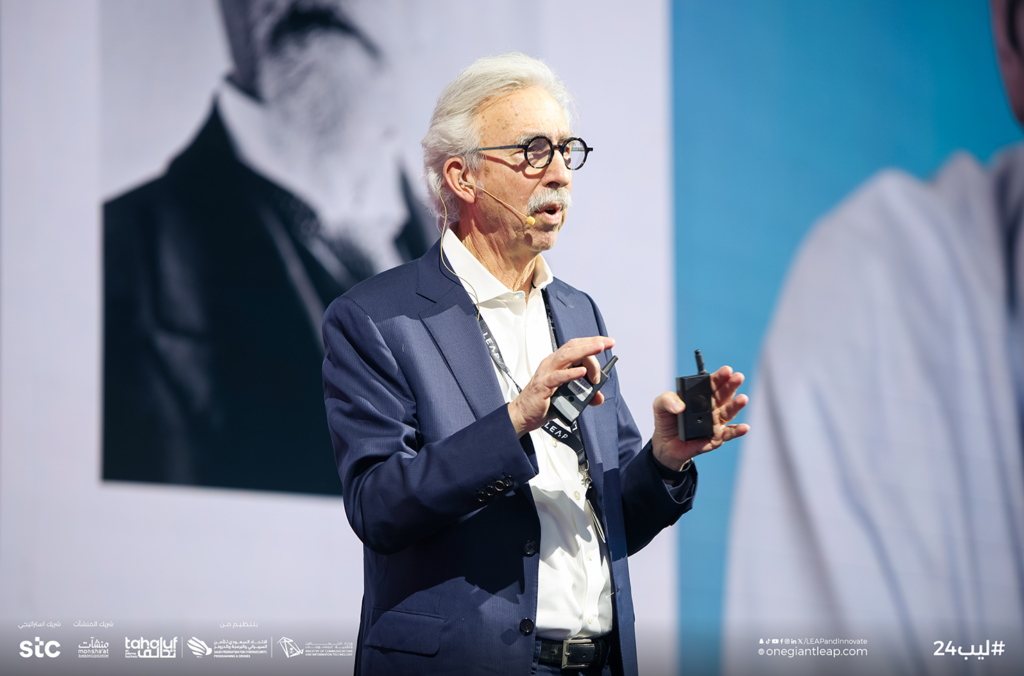Academy President Brings AI Expertise to Saudi Arabia Conference
Nicholas Dirks focused on large language models, such as ChatGPT, and the importance of context and culture when developing these technologies.
Published March 13, 2024
By Nick Fetty

Nicholas Dirks, President and CEO of The New York Academy of Sciences, recently presented at what has been dubbed “the world’s most attended tech event.”
Dirks gave a lecture titled “The Social Life of AI” to LEAP conference attendees at the Riyadh Exhibition and Convention Center in Saudi Arabia’s capital city. His presentation was part of DeepFest, a section of the LEAP event focused specifically on artificial intelligence (AI), which featured more than 150 speakers and nearly 50,000 attendees.
Dirks’ presentation covered a range of AI topics from the origins of human-machine interaction during the industrial revolution to the social and cultural impacts AI will have as the technology continues to develop.
“I seek here not just to talk about benefits and dangers, nor the larger debate between techno optimists and those who worry about threats about extinction, but about how AI will impact our everyday lives in ways that will be about far more than the more obvious importance of technology in our economic and political worlds,” said Dirks.

Dirks focused on large language models, such as ChatGPT or autocomplete, which use machine learning to “predict and generate plausible language.” When developing these models, Dirks emphasized the importance of context and culture, both of which can greatly impact how AI is programmed to generate language.
“Humans live in webs that are particular to cultural and historical experience, some shared across the entire human race, others deeply specific to smaller groups and contexts,” said Dirks. “Language is thus critical, but so is the cultural context within which any language is developed, learned, and deployed.”
Creating Social Meaning
Without proper regulations and best practice guidelines, AI might change cultural contexts in negative ways, rendering it a problematic player in the symbolic game of creating social meaning. This can lead to greater autonomy for machines, and less for humans, causing people to have more faith in machines than in humans. Within just the past couple of decades, issues caused by changes in technology are being brought to the forefront, such as the loss of jobs due to automation, mental health concerns spurred on by social media algorithms, and the dissemination of misinformation and disinformation through deepfakes and other maliciously manipulated content.
To avoid these pitfalls, Dirks says experts from various disciplines, including humanists, social scientists, psychologists, and philosophers, must be brought to the table in the research and development of AI technologies. These technologies should be frontloaded with socially positive applications, such as relevant and inexpensive educational opportunities, frictionless access to financial and other transactions, entitlements, and more.
While many serious considerations must be factored into the development of AI to avoid negative outcomes, Dirks ended his presentation with an optimistic look at the positive potential of AI moving forward.
“The social life of AI need not destroy or replace our own social lives as human beings. With deliberate, cross-sectoral, and multidisciplinary engagement – we can ensure that AI augments our lives, neither replacing nor subordinating us, and that the benefits of AI are shared by all,” he said.
Learn more about The New York Academy of Sciences’ efforts into AI such as the Artificial Intelligence and Society Fellowship as well as the Tata Series on AI & Society.
